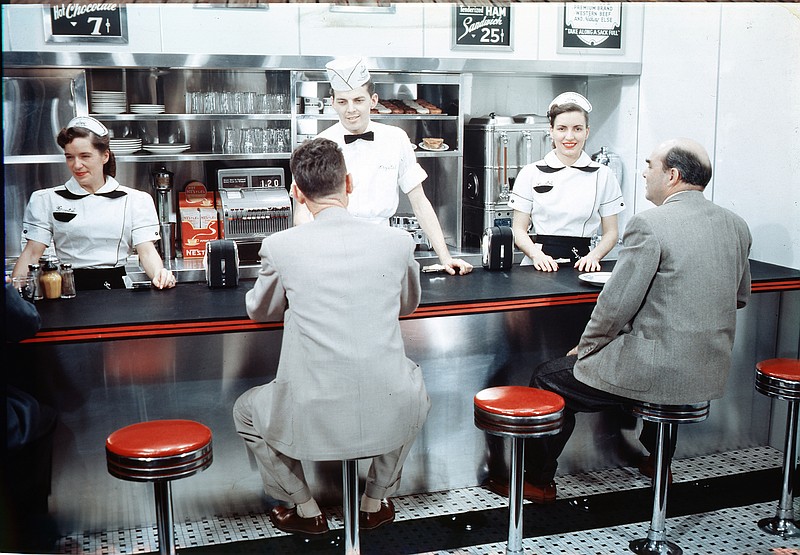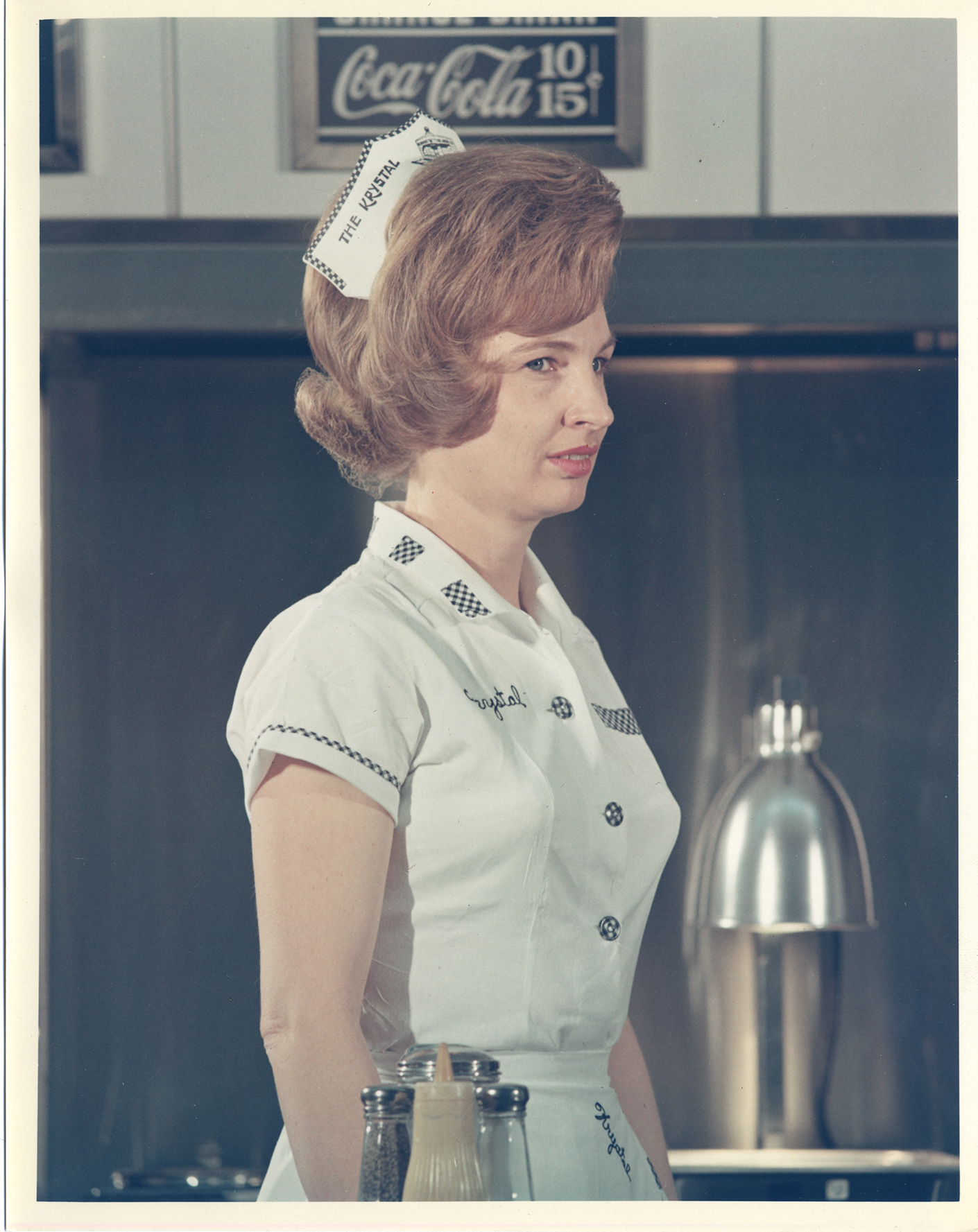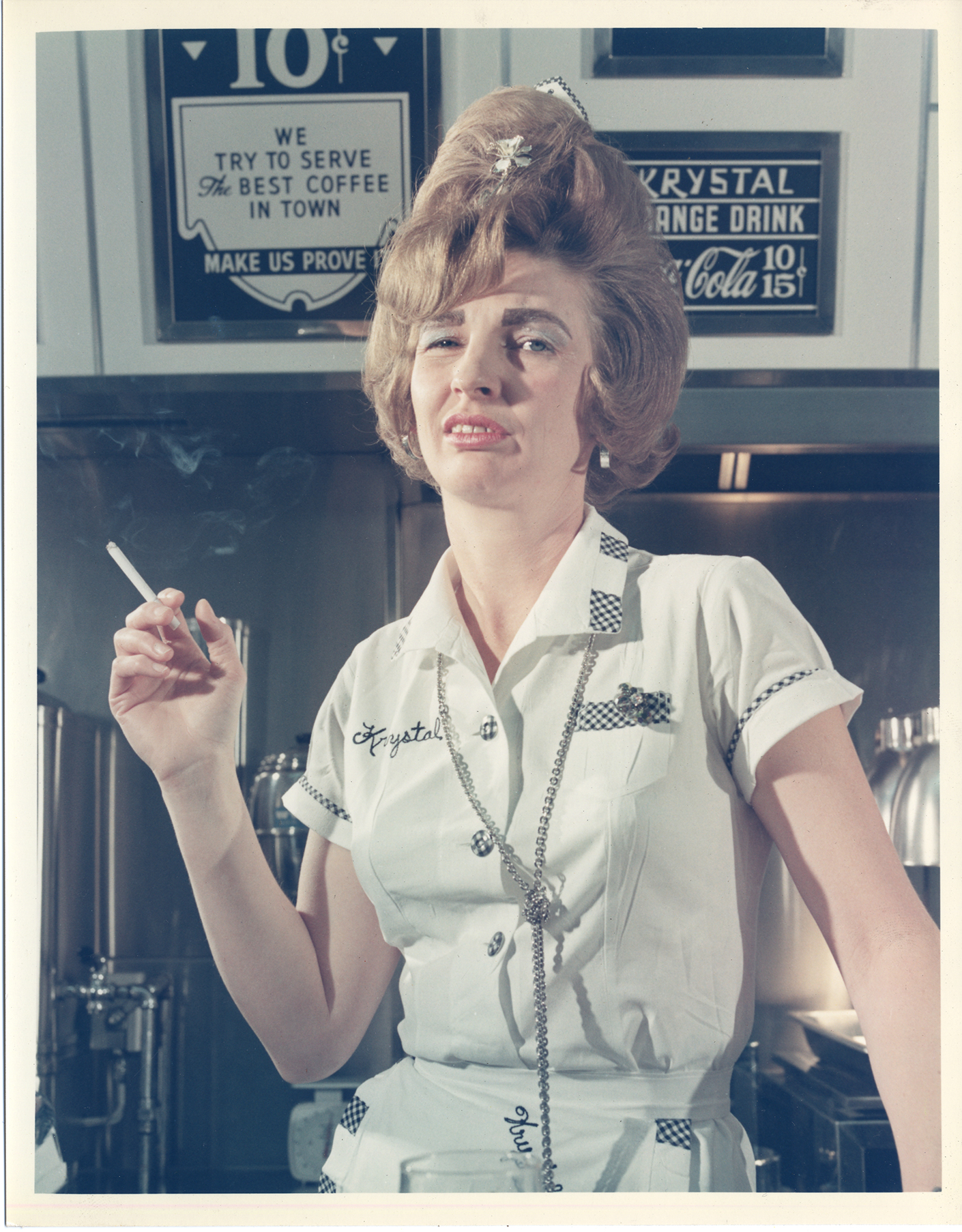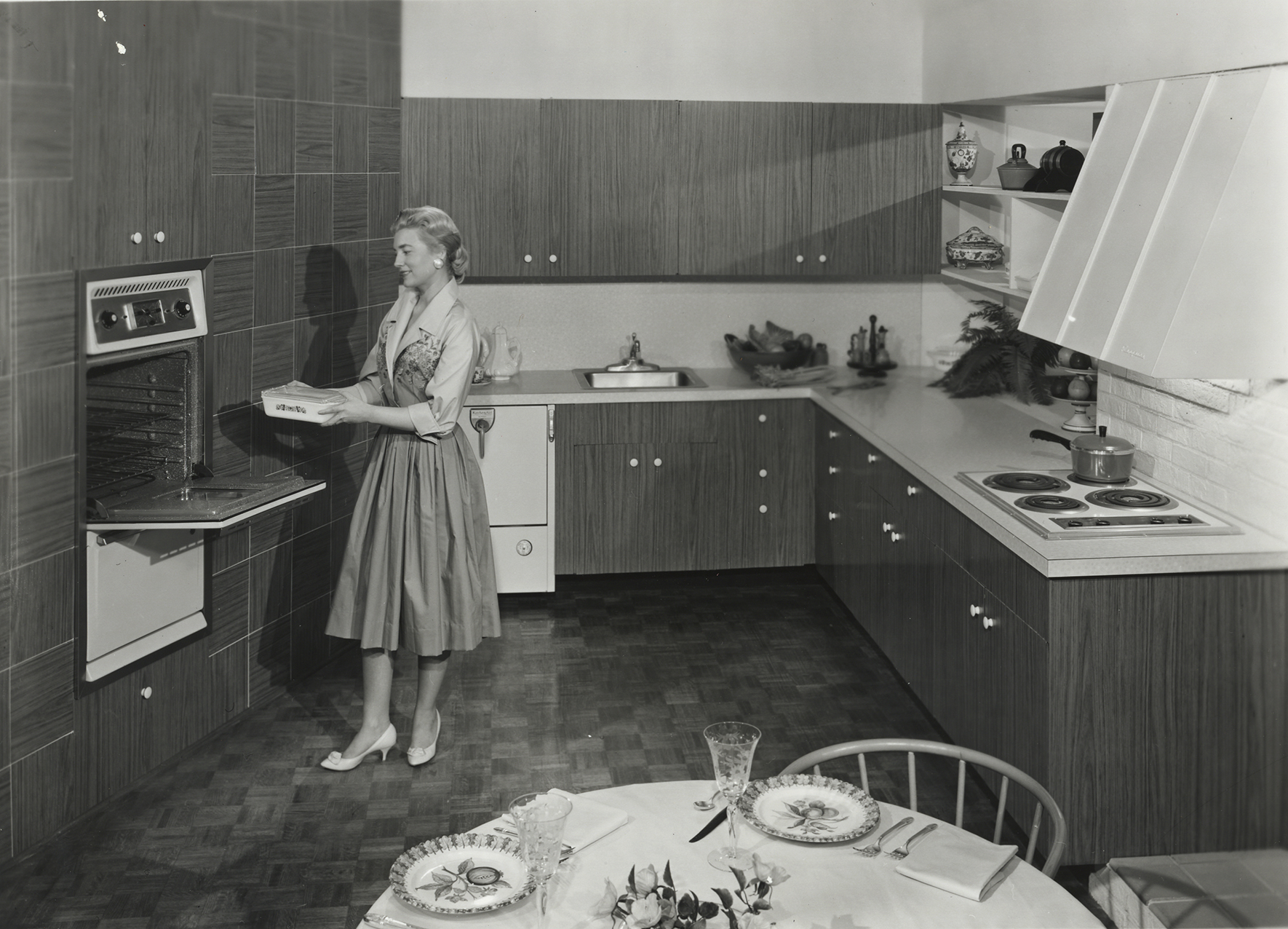The Bad Waitress terrorizes customers. She chain smokes cigarettes as she jots down food orders. She penciled Groucho Marx eyebrows above her drooping eyelids and a beauty mark onto her face where a dimple would be -- if she ever smiled. Her smeared lipstick can't conceal sneering lips. Her hairstyle is collapsing crazily around her face.
Chattanooga-based Continental Films deployed the Bad Waitress in films and slideshows during the 1950s and early 1960s to teach Krystal employees how to give excellent customer service. (Yes, Krystal once had waitresses.) The same actress returns as a nonsmoking Good Waitress wearing a spotless uniform. Her hair is swept into a neat bouffant, her eyebrows perfectly plucked and her makeup is modest. She even smiles demurely.
These movie stills are from just one of the thousands of items -- films, commercials, slideshows, still photos -- that Continental Films donated to Chattanooga's new History Center, planned to open this year near the Tennessee Aquarium. Some films, like the one with Good/Bad Waitress, were in-house instructional movies that taught employees how to provide good customer service or pitch the company's product.
Coca-Cola, Little Debbie, TVA, Dixie Youth Baseball and American Lava were just a few of Continental's many clients. Some of the collection consists of commercials that played on TV or in movie theaters before the feature film started. One of Continental's loyal clients was Brock Candy Co. whose nut rolls, chocolate stars, gummy bears and peppermints were often available at movie concession counters.
"Brock's peppermints were famous because the red color went all the way to the center of the candy disc; it wasn't just printed on," remembers Continental CEO Jim Webster, who was manning the phones the day before Christmas Eve so his employees could enjoy the day off.
Founding father
Webster inherited the company from his father, who founded it in 1951. At that time, workers learned how to do their jobs with one-on-one instruction or in a classroom setting with workbooks. Almost no one was producing instructional films for corporations.
"My dad went from door to door, explaining to executives that there was a better, more efficient way to train employees," Webster says. "Those films were considered cutting edge at the time. Of course, the 1960s were a watershed moment for advertising. Ads became sexier, edgier.
"(Ecologist and environmentalist) Rachel Carson's 1962 book 'Silent Spring' had a huge impact on the American public's attitude toward advertising. Her book made consumers realize that manufacturing some products came with a price for the environment," he says. "Smokestacks were a sign of prosperity in the 1950s. In the 1960s, they raised concerns about pollution. Advertising had to became more sophisticated to adapt to consumers' increased skepticism."
Webster's donation to the History Center offers Chattanoogans a fascinating glimpse into an era when their city was an economic powerhouse; one Continental film made for the city assures job seekers that they will find a symphony, beautiful rivers and museums here as well as employment.
America was moving from the hunkered-down, crisis mentality of World War II into an almost forgotten concept of normal life. But one era's normal can be another century's weird mystery. Why, for example, do 1950s ads for kitchen and home appliances show housewives wearing stiletto heels, pearls and a swirl of stiff petticoats for their skirts as they baked pineapple upside down cake and fried chicken and vacuumed the floor?
Post- war Message
Chattanooga native Robin Derryberry, owner of Derryberry Public Relations, has clients that cover the spectrum of politics, media and corporate powerhouses. She has an intriguing theory that these 1950s ads and instructional films offered Americans a luminously happy and secure picture of what normal is after years of war and hardship.
She believes they also helped American workers make a shift that was just as dramatic in its way as the widespread use of the Internet was to 1990s workplaces.
"The Continental donation documents a fascinating time in our history, when the economy was moving from wartime production to a peace-time economic boom when customer service was important," Derryberry says.
"Back in the 1950s, mother wore beautiful shirtwaist dresses that she starched carefully whenever she left the house. She did not wear them to vacuum or fry chicken. But the point of those ads seems to be that the amazing new inventions for women let them do messy, tiring chores easily, quickly and without mussing their nice outfits."
The ads also signal that having dinner at home with the family or greeting hubby at the door are special occasions worth donning a nice outfit to do (often with a kiss for hubby's lips and a martini for his hand). The message has a special post-war resonance for women who did not know whether the men they loved would live to come home.
Continental Films has evolved with the times. Webster observes that it's been a long while since the company has done films since it now focuses on video and DVD production as well as Internet streaming.
"We also do a lot of high-tech installations for clients who want to do multimedia events and conferences," Webster says. "We do a lot of work for museums, sound and visual installations. But I always kept track of that 1950s material because I knew the material would be a great resource for historians, researchers and students."
How films will be used by center
History Center curator Marie Bourassa Cullis is currently digitizing the Continental films and scanning photos and slides with help from a team of volunteers.
"Right now, I can't really estimate how many films, film strips, slides and photos are in the collection because I haven't had time to go through the entire collection. But I can estimate there are thousands," she says.
"We're in the 500s so we've barely scratched the surface; at this point, I'm not even sure what is in the donations because we have so many more to go. But the goal is to have the entire collection available to the public digitally and online after we open.
Cullis did not know when the History Center would open in 2015. Executive Director Daryl Black says the center, which has been in development since it moved into its Market Street location in 2011, has not yet set a target date.
In March 2014, Black told the Times Free Press the museum was expected to open in late summer. By February 2014, the museum had raised $9.6 million of its $10.5 million fundraising goal so the opening seemed like an obtainable goal, but it did not happen.
The Chattanooga History Center announced the first round of exhibits was delivered for installation in September 2014, but a winter 2014 grand opening that museum officials hoped for did not happen.
"I was on the center's advisory board and never had any idea when it would be ready to open, either," Webster says wryly.
Contact Lynda Edwards at ledwards@timesfreepress.com or 423-757-6391.



